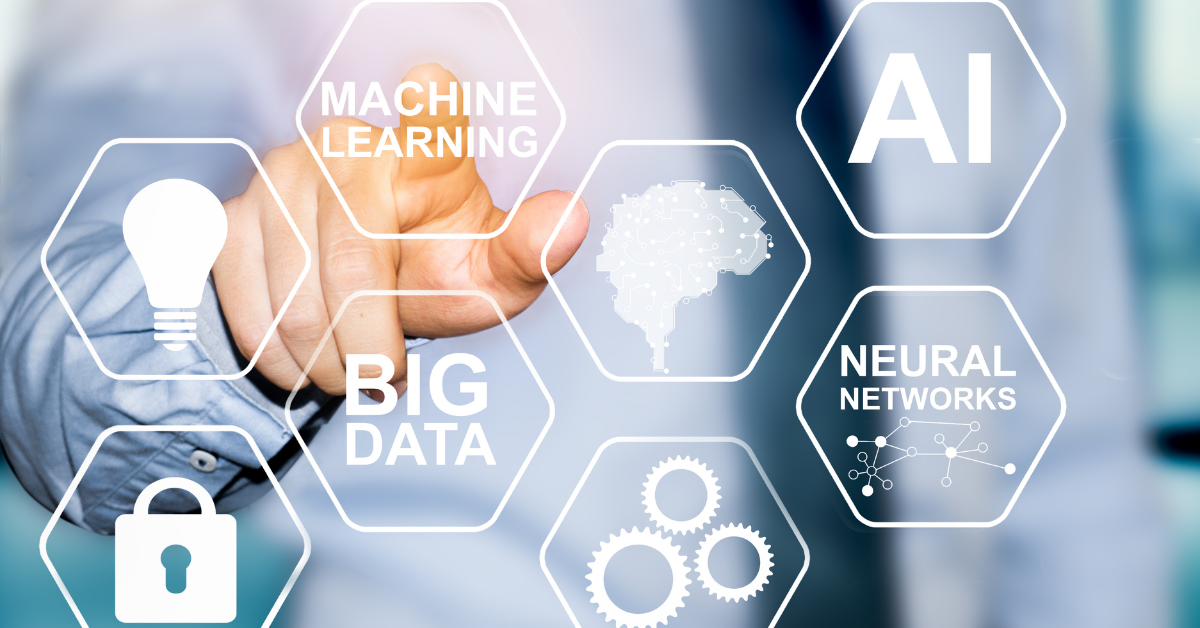Why Hyperautomation is Becoming a Business Essential: A Comprehensive Guide

- How Does Hyperautomation Differ From Traditional Automation Practices?
- What are the Leading Technologies Driving Hyperautomation?
- How can Hyperautomation Improve Efficiency, Accuracy, and Productivity?
- What are the Potential Challenges in Implementing Hyperautomation?
- Boost Your AI and ML Career With Emeritus
Modern organizations constantly seek ways to work smarter, improve efficiency, and stay competitive. One of the most transformative trends in achieving these goals is hyperautomation. In brief, hyperautomation is increasing the automation of business processes by introducing Artificial Intelligence (AI), Machine Learning (ML), and robotics. In this blog, we will first highlight its growing demand in the market. Second, we will explore how it is revolutionizing business processes. And, third, we will understand how it creates new job opportunities, especially in AI and ML.
What is Hyperautomation, and Why is it Becoming More Critical in Today’s Business World?
As mentioned earlier, hyperautomation integrates advanced technologies like robotic process automation (RPA), machine learning, and AI, to automate and optimize complex business processes. Needless to say, it goes beyond traditional automation by combining automation with intelligent decision-making capabilities. Additionally, it helps organizations automate repetitive tasks, analyze data, and make smart decisions.
As businesses strive to improve efficiency, reduce costs, and enhance customer experiences, hyperautomation has become crucial. In fact, according to Salesforce, 80% of businesses are already planning on implementing it by 2024. It could enable organizations to achieve digital transformation by automating entire processes and seamlessly integrating systems. Additionally, by embracing it, businesses can boost productivity, foster innovation, and gain a competitive edge.
ALSO READ: The Pros and Cons of Automation in the Workplace
How Does Hyperautomation Differ From Traditional Automation Practices?
 While traditional automation focuses on streamlining individual tasks, hyperautomation takes a holistic approach by automating complete business processes. Furthermore, traditional automation relies on rule-based algorithms, but hyperautomation utilizes AI and ML algorithms to analyze vast amounts of data and adapt to changing conditions.
While traditional automation focuses on streamlining individual tasks, hyperautomation takes a holistic approach by automating complete business processes. Furthermore, traditional automation relies on rule-based algorithms, but hyperautomation utilizes AI and ML algorithms to analyze vast amounts of data and adapt to changing conditions.
Therefore, unlike previous automation methods, it can handle complex decision-making processes that involve unstructured data and variable situations. Moreover, it combines multiple technologies into a unified system, providing intelligent insights, and automated actions. Thus, incorporating various technologies offers new opportunities for businesses to optimize processes and drive innovation.
What are the Leading Technologies Driving Hyperautomation?
Hyperautomation relies on a range of advanced technologies to deliver transformative results. These include:
Robotic Process Automation (RPA)
Robotic process automation automates repetitive tasks based on predefined rules. This frees up employees’ time and allows them to focus on more valuable work. Moreover, RPA bots can perform tasks across different applications and systems, mimicking human actions.
Machine Learning
Machine learning algorithms enable systems to learn from data and improve their performance over time. Through ML, hyperautomation systems can recognize patterns, make predictions, and continuously optimize processes based on real-time data.
Artificial Intelligence
Artificial intelligence empowers hyperautomation systems to perform complex tasks that require cognitive abilities. These include natural language processing, computer vision, and decision-making. Therefore, by integrating AI into business processes, organizations can automate tasks that previously required human intervention.
Business Process Automation (BPA)
Business process automation automates end-to-end business processes, including human and system interactions. It aims to enhance efficiency, reduce errors, and improve collaboration by automating workflows, data exchange, and task management.
How can Hyperautomation Improve Efficiency, Accuracy, and Productivity?
 Hyperautomation brings several benefits to organizations looking to optimize operations and boost productivity. Here are some ways in which it improves efficiency, accuracy, and productivity:
Hyperautomation brings several benefits to organizations looking to optimize operations and boost productivity. Here are some ways in which it improves efficiency, accuracy, and productivity:
Streamlined Processes
It eliminates manual and repetitive tasks, allowing employees to focus on more valuable activities. Moreover, by automating workflows, organizations can reduce errors, improve turnaround time, and enhance overall process efficiency.
Data-Driven Decision Making
Through the integration of ML and AI, hyperautomation systems can analyze large amounts of data and provide actionable insights. In essence, this enables organizations to make informed decisions, identify patterns, and optimize processes based on real-time information. The advantages include:
-
Enhanced Customer Experiences
It enables businesses to provide better customer experiences by automating customer interaction processes. It ensures faster response times, personalized services, and improved satisfaction.
-
Increased Accuracy
By automating tasks, hyperautomation reduces the risk of human errors, improving output accuracy and quality. This, accordingly, is particularly beneficial in areas—for instance, data analysis and compliance processes—where precision is crucial.
ALSO READ: How to Become a Robotics Engineer: Follow These Easy Steps
What are the Potential Challenges in Implementing Hyperautomation?
While hyperautomation offers significant advantages, there are challenges that businesses may face during implementation. These include:
Legacy Systems Integration
Integrating it with your current infrastructure can be highly challenging. However, businesses can overcome this challenge by working with experienced professionals specializing in system integration, thus ensuring system compatibility.
Change Management
While implementing hyperautomation may require changes in processes, roles, and responsibilities within the organization, businesses should prioritize change management strategies, train employees, and communicate its benefits to gain support.
Data Security and Privacy
It involves handling large amounts of data, which raises concerns about security and privacy. Organizations should, therefore, adopt robust cybersecurity measures, comply with data protection regulations, and ensure secure data handling practices throughout the automation process.
Boost Your AI and ML Career With Emeritus
Hyperautomation is reshaping the business landscape by revolutionizing processes and creating new job opportunities. In fact, by leveraging technologies such as RPA, ML, and AI, organizations can achieve digital transformation, streamline operations, and improve productivity. Although there are challenges in implementing it, businesses can overcome them with careful planning and effective change management.
To conclude, as the demand for hyperautomation professionals continues to rise, investing in upskilling and pursuing courses like those offered by Emeritus can help individuals advance their AI and ML careers. These courses are offered in collaboration with premiere global universities and taught by renowned industry experts to enhance your career prospects. Stay ahead of the curve by enrolling in the Emeritus platform’s machine learning and artificial intelligence courses.
Write to us at content@emeritus.org






